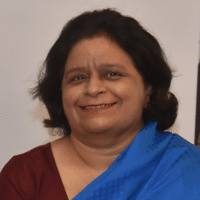Women, Ageing and Abuse
Looking at the title you must be assuming that it would be about violence in the lives of women with maybe the nuance of age added to it. The reaction of men and women to this may vary. If you are a man, you may think I know it all, I have read it all. Anyway, I love and value all the females in my life even those who I know remotely. They are all happy as can be. What more could there be to it? So, why spend 10 minutes on this. If you are a woman, you probably live it so what is there to read?
Let me make an effort to entice you to read this piece. We all know that females hold 50% of the sky in the world and get 150% attention in macro forums and documents and all other places that are fancy, where the high and mighty are found. But, in reality—that is closer to the ground where commoners like you and me are found—each day is another struggle for men and women. Where the complexities of life have to be grappled with each day to make it work. In that grime and dirt does it help being a female or does it make it even harder. Does age add another layer and dimension of challenges or makes it easier? After all, at least in India we love and respect our elders more so the ‘mother’ most commonly used to address older women. Does this reveal or conceal the reality?
Let us look at this a little more closely. ‘Mother’ is one who is makes sacrifices for comfort of her children. No big deal. She is self-effacing. She gives up her well-paying job or career to take care of her children. No big deal. She makes heavy emotional investment in children. No big deal. After all that her primary responsibility. She is not doing anything unusual or heroic. Do you agree? If yes, please continue to read.
The typical trajectory in the life of a mother. When her children are small, they are dependent on her, their world revolves around her. She is the most important person in their lives without whom they may not be able to do much. As they become adolescent, she is likely to become the ‘helicopter’ mom. A little later, nothing but a meddling person who has nothing of her own to keep busy. Lastly, she becomes an unbearable burden to be off-loaded in various ways, the most stark being: neglected in her own house, abandoned in an institution or in one of the holy cities. Actually, she does not have the intelligence to know when and where to stop treating her children as children. There is certainly a ‘father’ in the background trying to rationalise all this for her. For he also believes that she did her job well.
But you may very well counter question me and ask, an overwhelming majority of ‘mothers’ still live with their adult children. Many of them still have the house registered in their names. They are many a times joint account holders. Many retire with a good pension or assets. Families rush to help them, as and when they ask. Many may think that what is more fulfilling for a woman than seeing her children do well in life, irrespective of whether they acknowledge her contribution or not. Really?
That is where we are looking for the intersection on women, ageing and abuse. That which is so normalised, that we don’t even feel the pinch. For in real life when the ‘mother’ is old, without income or economic security, without much education, unable to traverse the digital world, unable to keep pace with the changing social norms in the world, she becomes irrelevant and quietly neglected if not outrightly abandoned.
I can also quote facts and figures to let you know how many are facing these challenges. But would be happy if you on your own try to find out about this in India and the world. Also not stop at that, but look around yourself and make the change, and encourage the women around you to be individuals too. Encourage your workplaces to ensure that women employees who take career breaks for family responsibilities be given some encouragement to reskill, rejoin and continue to contribute to social security funds and health insurance.
With increasing longevity of women, it is important for us to change this scenario and create an enabling environment for women to thrive. After all, if those who hold 50% of the sky are impoverished, abused and uneducated, the rest 50% will have to take on more load!

This article has been written by:
Anupama Datta
Head – Policy, Research & Advocacy, HelpAge India







